Stay up-to-date with the latest news and legal updates from our law firm's blog, where our legal professionals and researches provide valuable insights on probate, estate planning, business, real estate law, and civil litigation. Our services extend to clients in Melbourne, Brevard County, throughout Florida, and, in select cases, nationally.
Meet Locally in Melbourne or Save the Trip and Meet Virtually. Serving all 67 Florida Counties.
Law Blog
FTC Issues Ruling to Ban Noncompete Agreements Nationwide
Apr 23, 2024
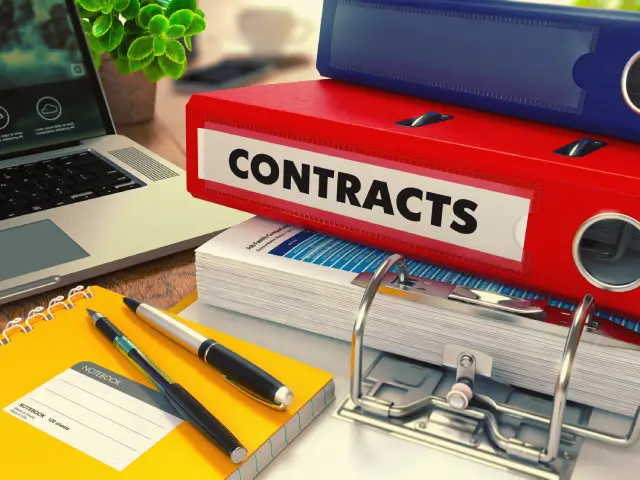
The FTC has banned non-compete agreements in the U.S. labor market, effective April 23, 2024. The FTC expects the rule to boost competition and worker mobility, impacting all employment contracts except certain executives. Businesses must comply immediately and revise contracts.
Risks Without Pet Trusts: Xyla's Near-Fatal Experience Post-Owner's Death
Dec 21, 2023
-1703195911.jpg)
In Florida, a shocking act of cruelty exposed the urgent need for responsible pet ownership and proper estate planning for pets. Xyla, a 16-year-old Shih Tzu, was abandoned in a dumpster by a family member of her deceased owner. Rescued and now thriving, Xyla's story highlights the importance of securing our pets' futures through legal means like pet trusts and designated caregivers. Responsible planning ensures our beloved animals are cared for, even after we're gone.
Don’t Say a Little Prayer: Estate Planning Lessons from Aretha Franklin's Probate Trial
Nov 29, 2023
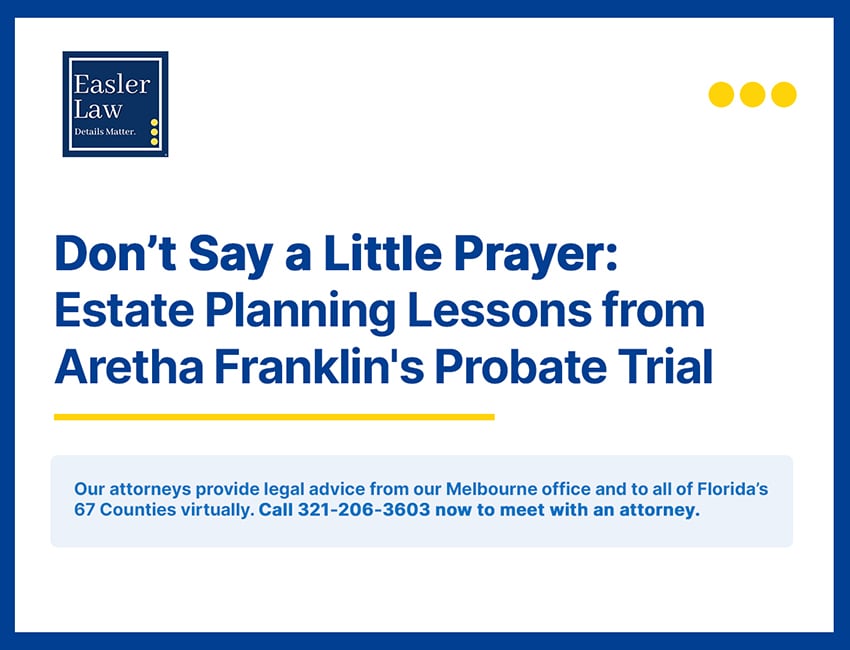
Aretha Franklin's contested handwritten will, found in her couch cushions, ignited a legal battle. Michigan accepted it, but Florida's stricter standards reject such wills. The case underscores the importance of proper estate planning and legal guidance.
Senate Bill 264: Impact on Florida Real Estate Transactions
May 24, 2023
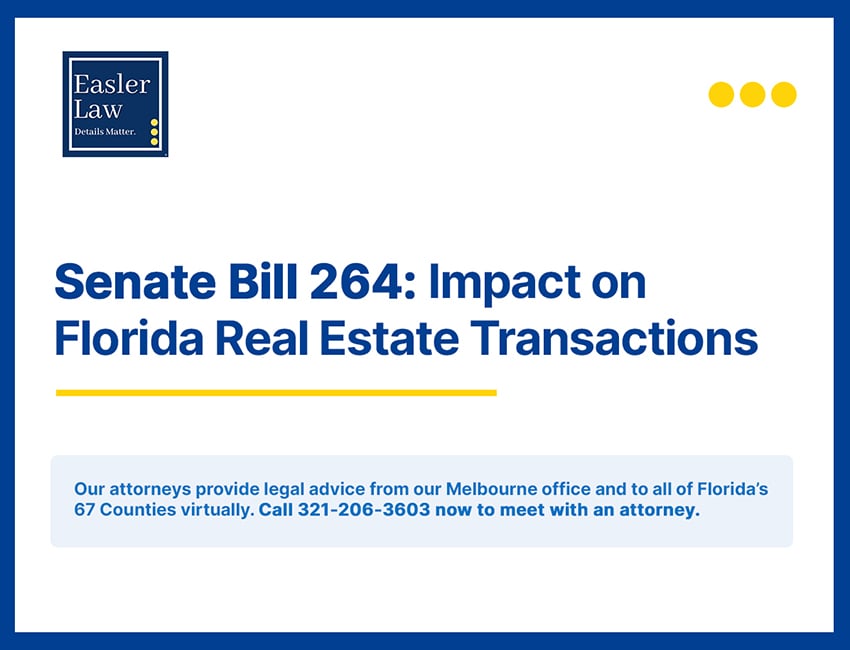
Brevard County Real Estate Market Analysis for April 2023
May 17, 2023
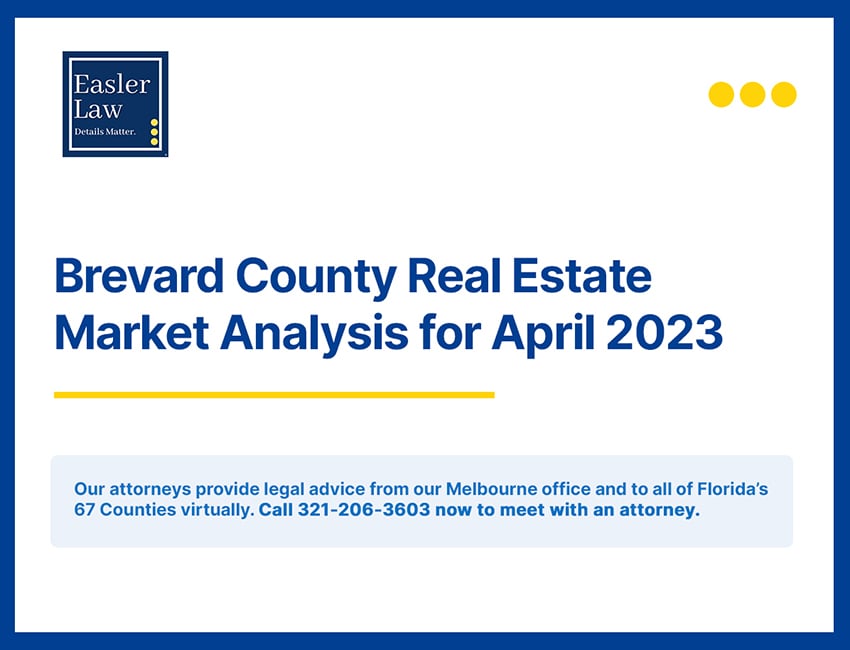
Brevard County Zoning Meeting: Key Decisions & Public Input, Mar 2, 2023
Apr 26, 2023
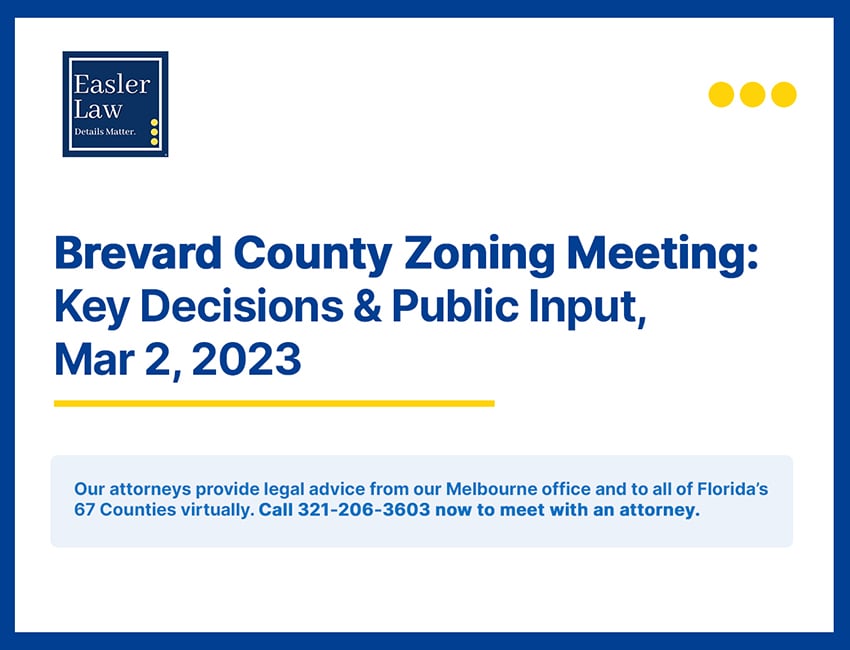
Brevard County Real Estate Market Shows Mixed Performance in Q1 2023
Apr 26, 2023
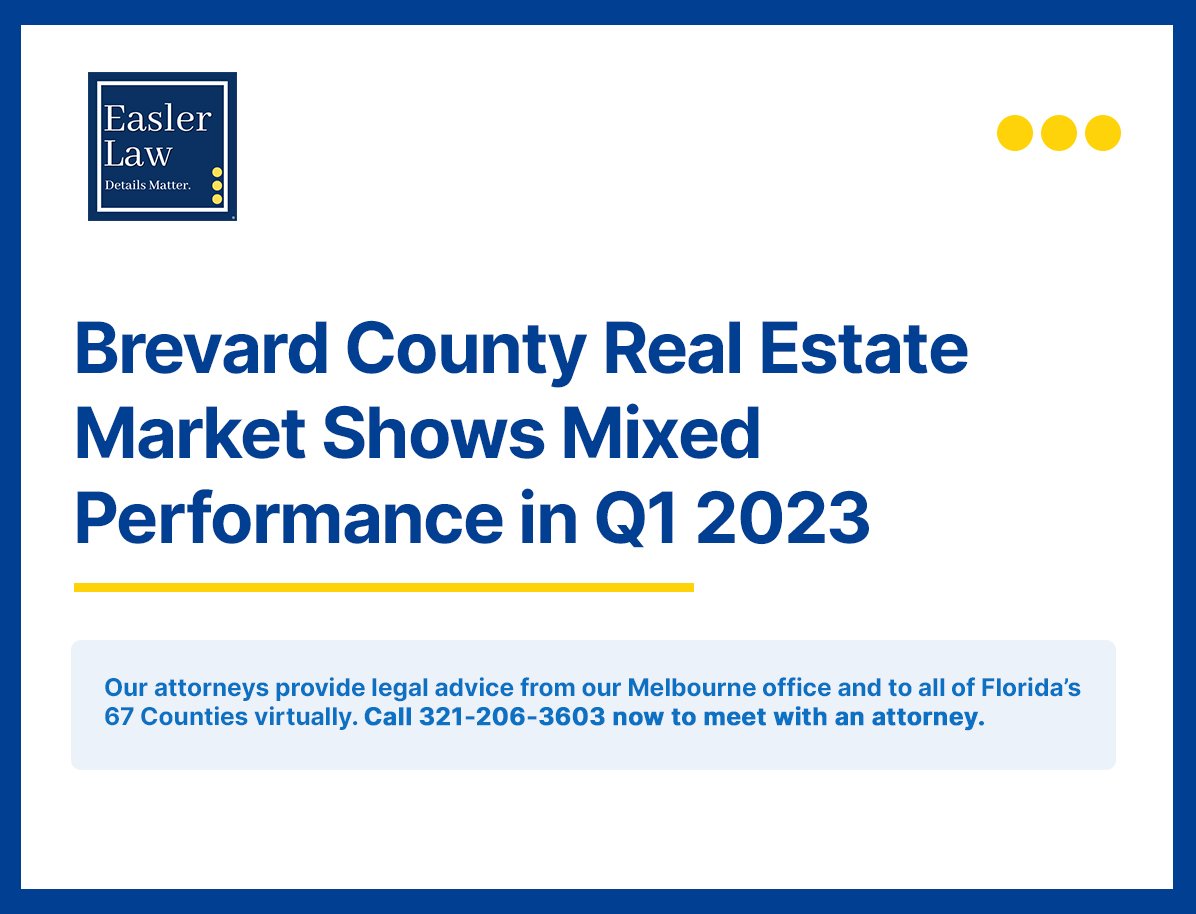
Florida Homebuyers Beware: 10 Tips for Identifying Common Home Defects
Apr 21, 2023
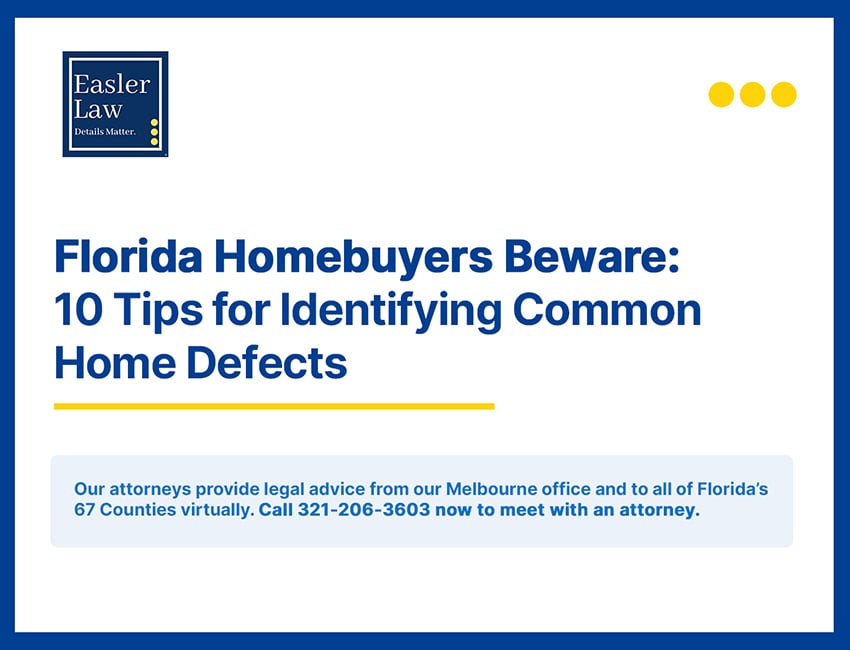
Dispelling the Myths of Reverse Mortgages in Probate
Oct 8, 2022
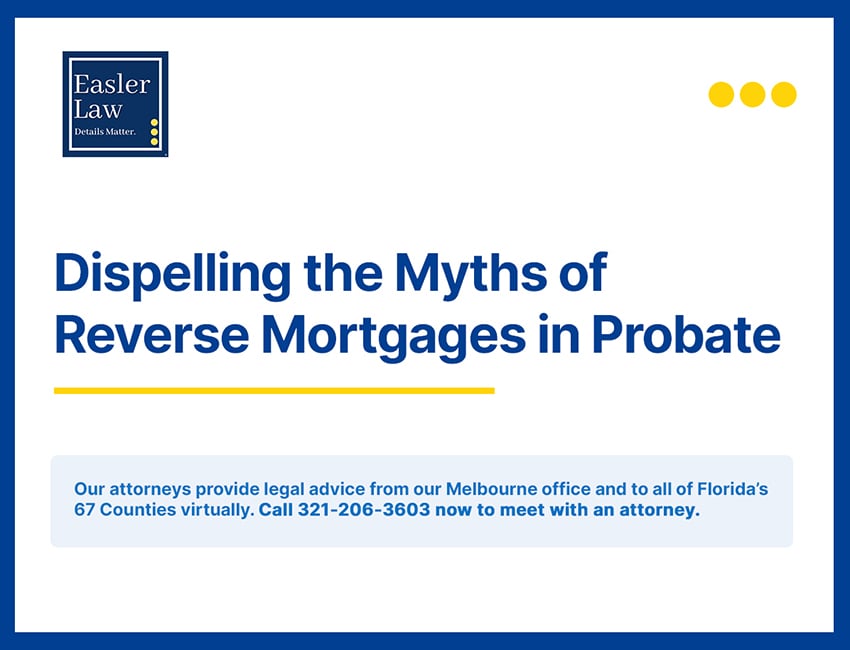
Estate Planning for Same-Sex Couples in Florida
Sep 19, 2022
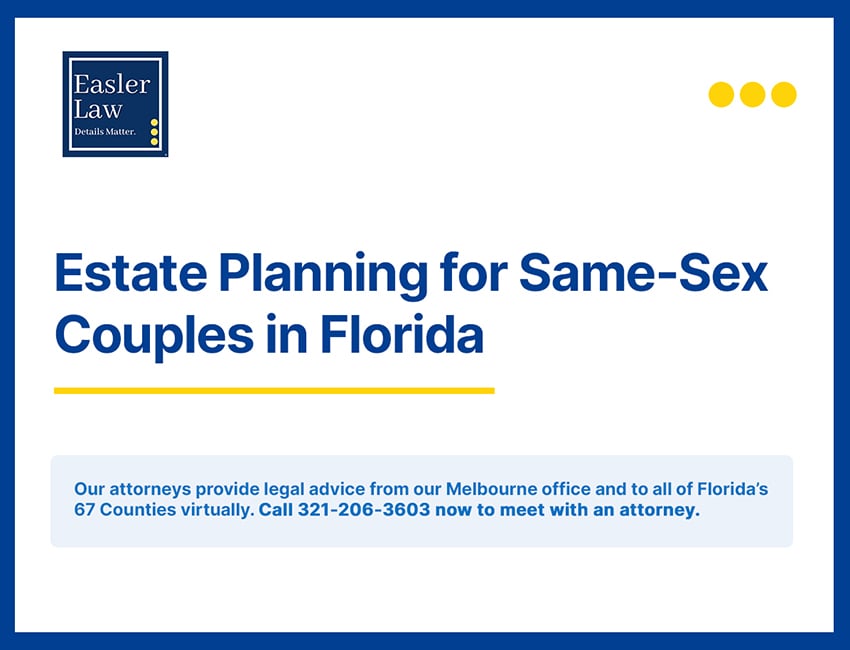
Our Practice Areas
Our talented and experienced attorneys and team members come from diverse backgrounds, but we share a common belief in doing right by those that entrust us with their legal matters. At Easler Law, we bring real-world experience to the table, we will critically think for you, we will do the work right, and we will never make excuses.
A real estate attorney specializes in property law, helping clients navigate the complexities of buying, selling, and managing real estate, ensuring that transactions comply with state laws and regulations, and providing protection and peace of mind.
Responsibilities of an attorney include drafting and reviewing contracts, negotiating terms, and resolving complex issues such as zoning, leasing, property development, and disputes involving boundaries or titles. Real estate attorneys are also skilled in handling litigation related to construction defects and other property disputes, helping to resolve these matters effectively and prevent potential legal challenges.
By conducting due diligence and offering strategic legal advice, attorneys play an important role in safeguarding clients’ interests. Whether for individual homeowners or commercial property investors, real estate attorneys mitigate risks, represent clients in court, and assist them with making informed decisions that are legally sound.
Attorneys who practice business law provide legal advice for starting, managing, and expanding businesses, ensuring compliance with applicable laws. Their expertise covers various duties, including drafting and reviewing contracts, advising on corporate governance, facilitating business transactions such as mergers and acquisitions, forming partnerships, LLCs, and other business entities like DBAs, drafting and reviewing LLC Operating Agreements, and assisting with strategic planning.
Business attorneys also help wtih legal matters such as intellectual property rights, disputes, franchising, and regulatory compliance, represent clients in civil litigation to resolve issues like contract breaches and other civil matters, offer advice on administrative and compliance requirements, assist clients who are buying or selling businesses, and even help plan for succession and asset protection.
Attorneys help mitigate risks, safeguard company interests, assist clients in making legally sound, informed decisions, help manage growth, and provide guidance to navigate and resolve legal challenges effectively. Their strategic insights are invaluable in ensuring business operations align with legal standards and long-term objectives.
Probate attorneys actively manage the estate administration process following an individual's death, ensuring the distribution of assets aligns with the will or state law, and handle Formal Probate Administration for complex cases, Summary Administration for smaller estates, and Ancillary Administration for assets in other states.
Responsibilities of probate attorneys include filing petitions, appointing personal representatives to manage estate affairs, notifying interested parties to ensure transparency and prevent disputes, helping conduct an inventory and appraisal of the estate's assets, overseeing the payment of debts and expenses, handling probate litigation to resolve any disputes that arise.
They also assist in distributing the assets and formally closing the estate, ensuring all legal and financial responsibilities are met, simplifying the complex probate process, honoring the decedent's wishes, and providing clarity and support to the beneficiaries.
Will and trust attorneys help draft legal documents to ensure their clients' wishes for asset distribution are executed correctly. They draft personalized and legally compliant wills to designate beneficiaries, appoint executors, and establish trusts for asset management and distribution. It is important to note that wills and trusts are an integral part of the estate planning process.
Responsibilities of wills and trust attorneys include providing legal advice and guidance related to asset protection, minimizing tax obligations, facilitating efficient wealth transfer to designated heirs, offering advice on appointing guardians for minor children, and drafting healthcare directives for unforeseen circumstances.
By providing tailored legal advice and crafting personalized documents, attorneys help clients safeguard their legacies, protect loved ones, and ensure that all documents are both legally compliant and enforceable.
Estate planning attorneys provide advice and legal guidance for managing and distributing assets in the event of death or incapacity and assist individuals of various financial backgrounds in preparing essential legal documents such as wills, trusts, and Lady Bird Deeds, and may offer advanced techniques like offshore trusts and family-limited partnerships.
Experienced attorneys offer personalized legal advice, tailoring strategies to meet individual client needs, and assist clients in navigating complex laws and regulations affecting asset management, taxation, and inheritance.
End-of-life planning safeguards wealth and secures a lasting legacy for heirs and charitable causes. Whether estates are modest or substantial, these plans provide invaluable peace of mind and financial security for future generations.
Civil litigation attorneys manage disputes and represent their clients effectively with various legal matters and issues. They provide clear legal advice and handle all aspects of a case, from preparing documents to gathering evidence and preparing for trial. They also offer guidance and experience to help clients navigate the legal system efficiently, ensuring that cases are managed effectively and lead to timely outcomes.
Civil litigators are also skilled negotiators, often resolving disputes outside of court to save time and maintain relationships, which is particularly vital in business and probate matters.
When trials are necessary, they present and argue cases effectively to minimize losses and secure favorable outcomes. They offer continuous support and guidance throughout the litigation process, simplifying complex legal issues for their clients in both personal and business contexts.
Frequent Asked Questions
Our FAQ section covers everything from starting and managing to growing and selling businesses. While our insights provide valuable guidance, all situations and matters are unique. Legal advice from a qualified lawyer is crucial for personalized solutions and compliance with regulations. With their expertise, you can confidently navigate complexities and ensure long-term success.


